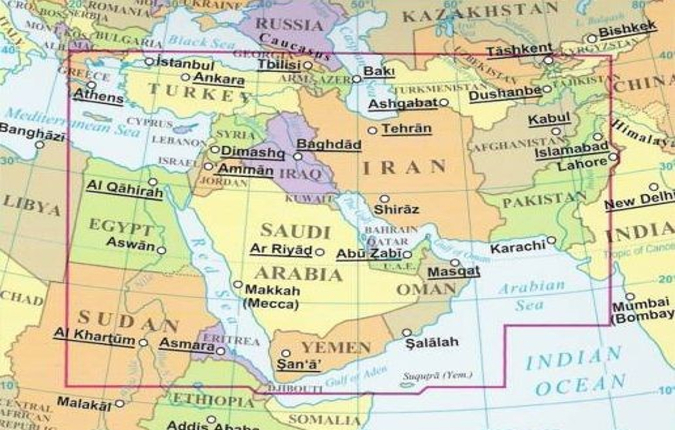|
|
Iranian President Hassan Rouhani : Iran Smarter Than To Fall in Trap
1 December 2020
EIRNS—The rational response by Iran, Russia, and the Gulf countries’ leadership to the assassination of Iranian nuclear scientist Mohsen Fakhrizadeh Nov. 27, shows that the nature of this operation is to provoke Iran to retaliate militarily against Israel and the U.S. forces in the region to ignite a new conflict in the middle of a U.S. electoral dispute. While Iranian officials and media were quick to point the finger of accusation against Israel and the U.S.-British-backed Iranian terrorist group Mujahidin-e Khalq (MEK), Iranian President Hassan Rouhani said on Nov. 28 in a televised statement: “The Iranian nation is wiser and smarter than to fall into the trap of the Zionists [Israel]. They are after chaos and sedition. They should understand that we know their plans and they will not achieve their ominous goals.” However, the President warned, “All think tanks and all enemies of Iran should know well that the Iranian nation and the country’s authorities are more courageous and zealous than to let this criminal act go unanswered. The relevant authorities will respond to this crime at the proper time.” The Russian Ministry of Foreign Affairs issued a statement saying: “We strongly condemn the assassination of Iranian scientist Mohsen Fakhrizadeh. We are seriously worried by the provocative nature of this terrorist attack, which was obviously designed to destabilize the region and exacerbate its conflict potential. Those who organized the assassination to further their political interests must be held accountable.” The statement was concluded by urging “all sides to refrain from moves that could escalate tensions.” The Persian Gulf states of the United Arab Emirates and Bahrain both issued official statements condemning the assassination of Fakhrizadeh. The two countries have recently signed peace agreements brokered by the Trump Administration and are fully normalizing economic and cultural relations with Israel. The U.A.E. Ministry of Foreign Affairs and International Cooperation issued a statement on Nov. 30 saying that the ministry “has stressed that the state of instability our region is currently going through, and the security challenges it faces, drive us all to work towards averting acts that could lead to escalation and eventually threaten the stability of the entire region.” The Ministry said that “emanating from its deep conviction on the need to pursue all means for stability in the region, it condemns the heinous assassination of Mohsen Fakhrizadeh, which could further fuel conflict in the region.” It concluded: “Given the current situation in the region, the U.A.E. calls upon all parties to exercise maximum degrees of self-restraint to avoid dragging the region into new levels of instability and threat to peace.” While the Saudi Arabian government did not issue a similar statement, its ambassador to the UN Abdullah Al-Muallimi stated in an interview with Russia Today-Arabi that Saudi Arabia is opposed to the policy of assassinations and that “the loss of a Muslim scientist anywhere is loss of all Muslim nations.” He emphasized that Saudi Arabia calls for “avoiding of escalation and spontaneous violent reactions.” The method of using terrorist and military actions, like the assassination of Iranian Revolutionary Guard leader Qassem Soleimani in January 2020, to generate a counter reaction from Iran, and thus start a new string of military operations, is becoming too obvious for many parties. It has to be replaced by the same diplomacy that led to the signing of the “nuclear deal” (Joint Comprehensive Plan of Action — JCPOA) between Iran and the G5+1 (UNSC 5 permanent states plus Germany) in 2015 that guaranteed that Iran would not be developing nuclear-grade uranium. Iran claims that it never had the intention of developing nuclear weapons. However, the JCPOA was the right insurance policy for the international community. At the same time, Iran’s right to utilize nuclear technology for civilian purposes was protected. The decision by the Trump administration to withdraw from the JCPOA and impose harsh sanctions on Iran, which should be considered a big mistake, reversed that positive trend and risked tearing down the “insurance policy.” Other actors, like the Israeli hardliners and their British and American backers in the military-industrial complex, are thus enabled to trigger a major disaster by provocative acts like this assassination. The rational response by the Iranian leadership is key to preventing such an outcome. [hus]
|


